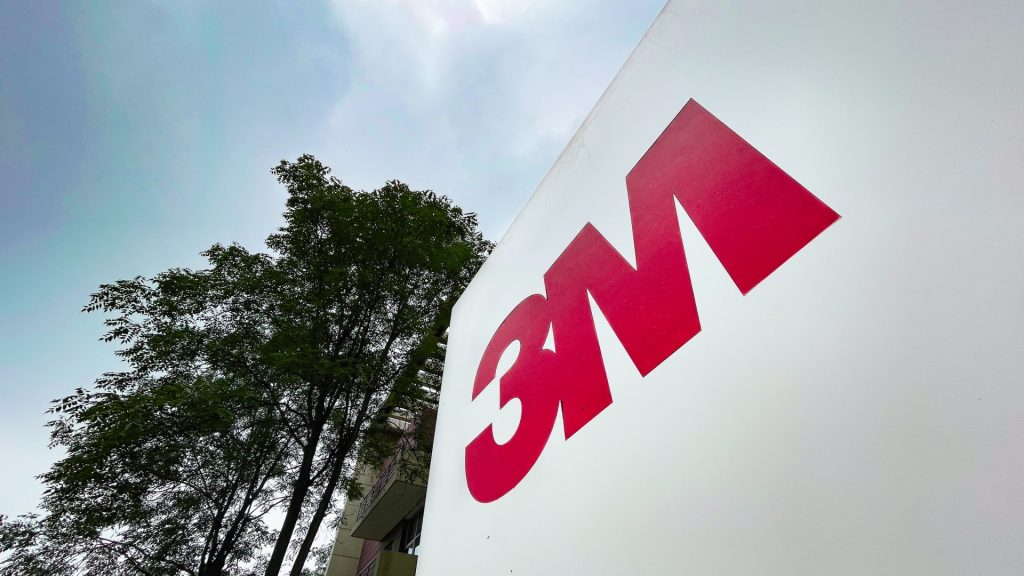In mid-day trading, several companies have made headlines with notable stock movements due to various financial performances and executive decisions. Notable among these is 3M, which saw an impressive increase in stock price following a strong earnings report, while RTX’s shares plunged despite exceeding earnings expectations due to concerns over management’s comments regarding tariffs. Other companies like CoreWeave and Northrop Grumman experienced significant fluctuations as market analysts evaluated their growth prospects for the future. This article will provide a detailed breakdown of the significant stock movements among these companies, the reasons behind these changes, and the implications for investors.
| Article Subheadings |
|---|
| 1) 3M Reports Strong Earnings, Stock Surges |
| 2) RTX Faces Investor Scrutiny Over Tariff Impacts |
| 3) CoreWeave Benefits from Analyst Upgrades |
| 4) Northrop Grumman Cuts Earnings Guidance |
| 5) Other Notable Movements in the Market |
3M Reports Strong Earnings, Stock Surges
3M, the well-known manufacturing conglomerate, posted better-than-expected earnings for the first quarter of the fiscal year. The company reported an adjusted profit of $1.88 per share on revenues of $5.78 billion, surpassing analyst estimates that had projected earnings of $1.77 per share with revenues hitting $5.76 billion. This performance resulted in an appreciable jump of 8.1% in the stock price, drawing attention from investors optimistic about the company’s robust financial health. The overseeing executives attributed this success to operational efficiencies and a strong product mix that resonated well in the market.
RTX Faces Investor Scrutiny Over Tariff Impacts
RTX, previously known as Raytheon Technologies, found itself under scrutiny after announcing its first-quarter earnings, which exceeded expectations. However, the stock plummeted nearly 10% due to concerns raised during the earnings call. Executives highlighted the potential challenges arising from U.S. tariffs on imports, which may significantly impact future profitability. This uncertainty sent ripples through the investor community, causing a reassessment of the company’s financial projections. Despite a strong performance, the insights from management regarding external economic pressures have left investors wary, reflecting the complex environment that companies are facing.
CoreWeave Benefits from Analyst Upgrades
In the emerging field of artificial intelligence, CoreWeave has gained traction following several analyst upgrades that commenced coverage with favorable evaluations. The company’s stock surged over 8% as market analysts, including those from Jefferies, lauded its potential to capitalize on a rapidly evolving AI landscape. They described the firm as “well-positioned” in a market that is still in its early developmental stages. With the AI and cloud computing sectors proliferating, CoreWeave’s advancements in technology and services have begun attracting serious investor interest, which is reflected in its rising stock performance.
Northrop Grumman Cuts Earnings Guidance
Northrop Grumman’s stock experienced a stark decline of 13% after the company revised its earnings guidance for the fiscal year. The defense contractor now projects earnings per share to be between $24.95 and $25.35 compared to earlier predictions of $27.85 to $28.25. This downgrade disappointed investors, many of whom had anticipated a strong fiscal performance due to the ongoing demand for defense contracts. The reduction in earnings forecasts has raised concerns about the company’s competitive position in the defense sector, prompting further scrutiny from stakeholders who are keen on understanding the underlying reasons for this downward revision.
Other Notable Movements in the Market
Several other companies have also seen significant stock movements, reflective of both favorable and unfavorable market conditions. Halliburton, an oilfield services provider, reported a decline of 6% in its stock price after indicating that tariffs implemented during President Trump’s administration would negatively affect their second-quarter earnings by up to three cents per share. Conversely, Calix, a technology services company, enjoyed a remarkable increase of 13% following a strong earnings report indicating 19 cents per share, exceeding forecasts. Meanwhile, notable fluctuations in stocks from Hertz, Zions Bancorporation, and others highlighted a dynamic day on the trading floor, revealing a complex interplay between company earnings reports and the overarching economic factors influencing investor behavior.
| No. | Key Points |
|---|---|
| 1 | 3M’s stock surged 8.1% due to strong first-quarter earnings, surpassing analysts’ expectations. |
| 2 | RTX shares fell nearly 10% after management cautioned about the impacts of U.S. tariffs on future profitability. |
| 3 | CoreWeave stock jumped over 8% following favorable analyst ratings amidst a growing demand for AI solutions. |
| 4 | Northrop Grumman faced a decline of 13% in stock price after cutting its earnings guidance for the fiscal year. |
| 5 | Other companies such as Halliburton and Calix also showed significant stock movement based on earnings reports and market conditions. |
Summary
The mid-day trading activity highlighted a mixture of optimism and caution among investors as various companies reported their earnings. While some like 3M and Calix enjoyed gains due to robust financial performances, others like RTX and Northrop Grumman faced sell-offs due to negative outlooks and external economic concerns. This scenario underscores the volatility inherent in the stock market, driven by continual shifts in company performance and broader economic factors such as tariffs and market demand. Investors are advised to stay informed and consider these dynamics as they make future trading decisions.
Frequently Asked Questions
Question: What economic factors influence stock prices?
Stock prices can be influenced by a myriad of economic factors including earnings reports, interest rates, inflation rates, and geopolitical events. Fluctuations in these areas can impact investor sentiment and subsequently affect stock market performance.
Question: Why do analysts upgrade or downgrade stocks?
Analysts upgrade or downgrade stocks based on a firm’s performance, market conditions, competitive positioning, and financial projections. Such ratings help investors make informed decisions based on projected future growth or risks associated with the company.
Question: How can investors protect themselves from stock market volatility?
Investors can protect themselves from market volatility by diversifying their portfolio, investing in a mix of asset classes, and keeping informed about market trends and economic indicators that may affect their investments.
